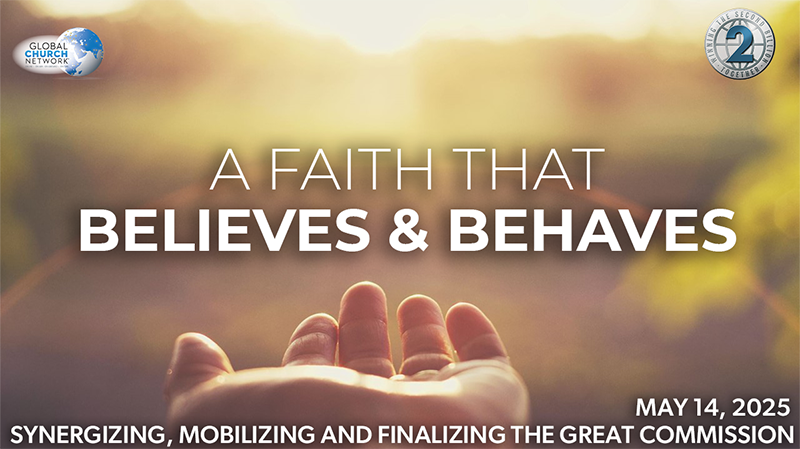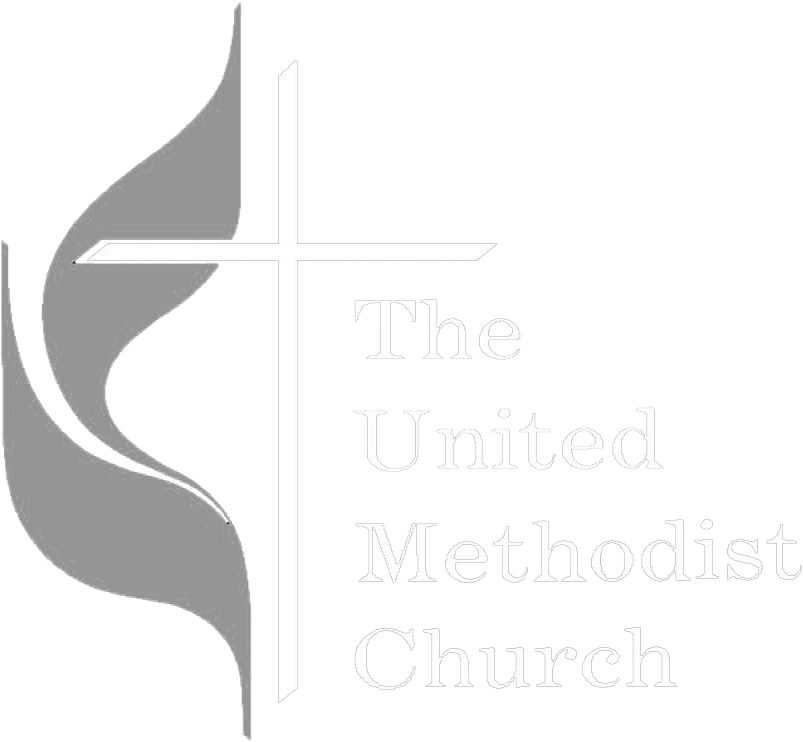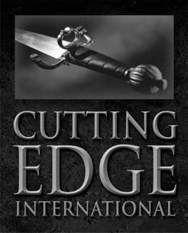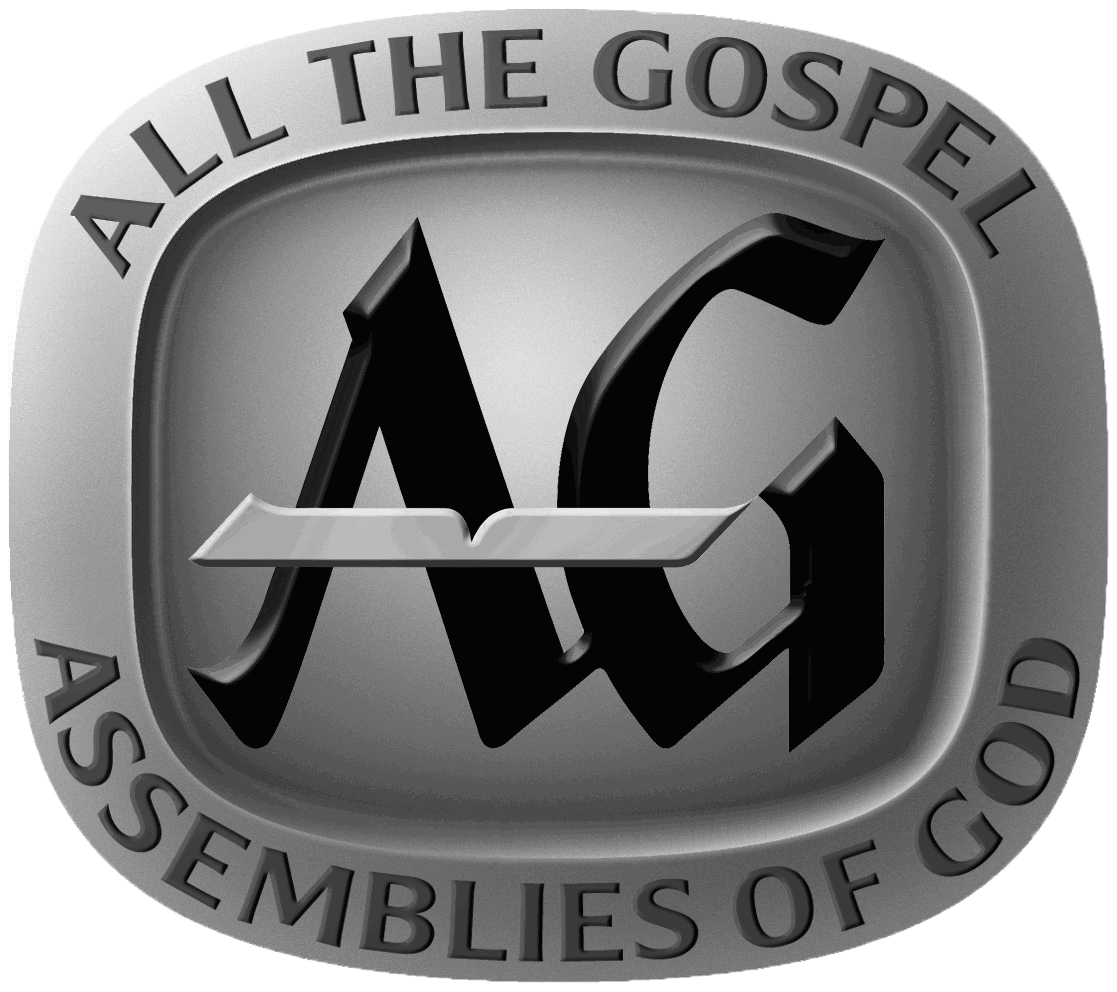A Faith That Believes And Behaves: Romans Series #10
 The great theme of the Bible is salvation. The greatest theme in the world is how you and I can be forgiven of our sins and go to heaven when we die. That’s why the Bible is the most wonderful book that has ever been written. All of the books of the Bible ultimately point to the great theme of salvation, but I don’t guess there is a book in the whole Bible that does that as well as the book of Romans.
The great theme of the Bible is salvation. The greatest theme in the world is how you and I can be forgiven of our sins and go to heaven when we die. That’s why the Bible is the most wonderful book that has ever been written. All of the books of the Bible ultimately point to the great theme of salvation, but I don’t guess there is a book in the whole Bible that does that as well as the book of Romans.
 In Romans 1:16 we are told, “I am not ashamed of the Gospel, the good news of Christ, for it is the power of God unto salvation to everyone who believes.” So the specific theme of the book of Romans is the Gospel—the good news about salvation.
In Romans 1:16 we are told, “I am not ashamed of the Gospel, the good news of Christ, for it is the power of God unto salvation to everyone who believes.” So the specific theme of the book of Romans is the Gospel—the good news about salvation.
As we move through the book of Romans, before Paul gives us the glorious, good news, he gives us the bold, bad news, which is sin. In chapter 1 right on into chapter 3 we read about the bad news of sin, that we are all sinners and in desperate need of a Savior. Then having heard the bad news, we get the good news in chapters 3–5 about salvation—what God has done to forgive us of our sins and get us to heaven when we die.
Paul uses a technical word, “justification.” This means the act of God whereby He acquits us of our sins and declares us righteous in His sight. In order to illustrate justification, in chapter 4 of Romans he shares with us a great illustration in the life of an Old Testament character named Abraham. In the life of Abraham he has illustrated what God does when He saves an individual. It is only God who can save. We can’t save ourselves. We can’t earn our salvation. We can’t work for it. We can’t merit it as something that is our due. Salvation is the act of God.
In the opening verses of chapter 4, Paul has used Abraham to illustrate that salvation is all of God. Now, when you get to verse 16 through the rest of the chapter, he is still talking about Abraham, but he’s talking about another side of salvation. Up to now we’ve been looking at the divine side—justification—all of God. Now he wants us to see the human side of salvation, in other words, how we bring what God has done for us in salvation into our life, how we can experience it on a personal basis.
The one word that really describes the human side of what salvation is all about is the word “faith.” The divine side is what God has done for us in Jesus. The human side is our response to what God has done by faith. Let me illustrate it to you this way. It’s like we were out in the Atlantic Ocean. We ran into a problem, and we were drowning. So a boat came alongside us and threw us a lifeline. We reached out to take that lifeline and the lifeline rescued us from the Atlantic; grace is the lifeline.
Faith is the hand that reaches out and takes the lifeline. Faith is the word that describes how we respond to what God has done for us. Abraham not only is an illustration of the divine side of salvation. He is also an illustration of the human side of salvation.
Testament hero, Abraham. He is known in the Bible not only as the friend of God, but he is also known as the father of the faithful. I want to teach from these verses about Abraham’s faith and show you what faith is all about and some of the great lessons of faith.
I. We Need the Confidence of Faith
 In Romans 4:16, we read, “For this reason it is by faith, in order that it may be in accordance with grace, so that the promise will be guaranteed. . .”He is talking about assurance. He is talking about certainty of faith. I have come to believe that the only certainty there is in our world is the certainty that people experience as a result of their faith in God, their trust in God. That’s the only thing I know that has any stability about it at all. That’s the only foundation I know that a person can build their life upon and have any assurance and certainty at all today.
In Romans 4:16, we read, “For this reason it is by faith, in order that it may be in accordance with grace, so that the promise will be guaranteed. . .”He is talking about assurance. He is talking about certainty of faith. I have come to believe that the only certainty there is in our world is the certainty that people experience as a result of their faith in God, their trust in God. That’s the only thing I know that has any stability about it at all. That’s the only foundation I know that a person can build their life upon and have any assurance and certainty at all today.
God’s Favor
Notice why faith brings certainty into our lives. It ties us into God’s favor. In verse 16, “the promise is of faith, that it might be by grace.” We are back out in the Atlantic Ocean again. Faith is the hand; grace is the lifeline. Faith, which is the hand, brings us in contact with grace, which is the lifeline.
One of the most familiar verses, which touches on this in all of the Bible, is Ephesians 2:8, “For by grace (lifeline) are you saved, through faith (the hand).” Grace is God’s unmerited favor. Grace is God doing something for us that we do not deserve but we desperately need. Grace is God saying, “You are now in My favor.” Grace is God saying, “I’m on your side.” Grace is God saying, “I am for you; I have done something to make it possible for you to be saved.” That’s wonderful! By faith you reach out, and when you do, your faith attaches you to the favor of God, and that brings great assurance and certainty in your life.
God’s Family
Not only does favor do that, but it also brings you into contact with God’s family. In verse 16 we read, “to all the descendants . . .” Next Paul states in verses16 and 17 that those of us who by faith have trusted in the promise of God about salvation are now the spiritual children of Abraham.
Earlier in Romans 4:11, we learned that Abraham is the father of all them that believe. That means that if you by faith have received Jesus Christ as your Savior, in one sense of the word, Abraham is your father in that he is the father of the faithful. That means you are a member of God’s family.
Abraham may be your spiritual father in one sense of the word in that he started this whole faith experience. But now it also means that by faith when you receive what God did for you in Jesus—at that moment you are born again and you become a member of the family of God. Now you have a wonderful heavenly Father who will always do what He says He will do. I don’t know about you, but that brings pretty good assurance to me because I know that God will not lie. I know that God is always true. I know that God will keep His word.
Therefore, that means anything my heavenly Father promises me, I know that will come to pass. How wonderful to have that in your daily life—to have some sense of confidence in your life! I’m going to heaven when I die. I don’t think I live that good, but I’m sure I’m going to heaven. My heavenly Father said He would take me to heaven when I die. My heavenly Father said if I would repent of my sins and receive His Son, the Lord Jesus Christ, as my Savior, I would go to heaven. I am just as sure of being in heaven as if I have been there 1,000 years because I’m counting on the word of my Father.
II. We Need the Consistency of Faith
 In Romans 4:20, we read, “. . . yet, with respect to the promise of God, he did not waver in unbelief but grew strong in faith, giving glory to God. . .” This is a faith that won’t give up. It means a faith that can’t be shaken. It means a faith that just keeps on keeping on. We are to keep trusting God.
In Romans 4:20, we read, “. . . yet, with respect to the promise of God, he did not waver in unbelief but grew strong in faith, giving glory to God. . .” This is a faith that won’t give up. It means a faith that can’t be shaken. It means a faith that just keeps on keeping on. We are to keep trusting God.
God made a promise to Abraham. He promised him one of the most unusual things in the whole Bible. God came to Abraham and said to him, “Look up—do you see all those stars in the sky?” Abraham said, “Yes, Lord, I see them.” God said, “Abraham, one of these days you are going to have a family, and they will be as numerous as those stars in the sky.” God promised Abraham he would be the head of a mighty family. God promised Abraham he would give him a son. The Bible said he just believed God. He put his trust in the promise of God. He put his trust in the word of the Father to him.
From that point on, years began to roll by, and Abraham didn’t have any sons. The years went by and he got on up to the age of 99. The promise still didn’t come. Yet Abraham just kept on believing. He just kept on holding to the promise of God. In Romans 4:17, we read about Abraham’s constancy in faith. We need to learn to hold on to the promise of God also by trusting what our heavenly Father has said to us. He does it with a negative and a positive.
What We Refuse to Do
Paul shares with us first what Abraham refused to do. Then he tells us what Abraham resolved to do. Abraham refused to look at the obstacles and the odds. In verse 17 it says that Abraham believed, even God, who quickens (makes alive) the dead, calls those things which be not as though they were. What does that mean? First, he chose to believe in a God who has the power to raise the dead. We call that resurrection. Second, he chose to believe in a God who could bring things into existence that did not previously exist. In other words, creation.
The first reality that hits us in the book of Genesis is “in the beginning God created the heavens and the earth.” One moment there was nothing; the next moment there was everything. Only God can bring into existence that which did not previously exist. Abraham’s faith was a faith that believed in a God who was big enough and powerful enough to bring into existence things that did not previously exist.
Additionally, Abraham’s faith was the kind of faith that could believe that though something was dead, God could bring life out of death. Look at the situation. What were the obstacles? God said, “Abraham, I’m going to give you a boy. From that boy will come a whole multitude of people.”
The first obstacle was Abraham’s dead body and his wife’s dead body. A 99-year-old man doesn’t become a father. He had a tremendous obstacle. But he just had something in his heart and in his mind. He believed that the God who had made a promise to him was the God of resurrection and the God of creation.
We learn in verse 18 that he, against hope, believed in hope. Let me give you another translation of that statement: “Abraham, building on hope, in spite of hopeless circumstances, had faith.” It’s saying that in situations where there looked like there wasn’t any hope, Abraham just kept on believing God. He just kept on saying, “God, it looks hopeless to me. The obstacles look formidable to me. God, I’ll just keep on believing what You have promised You will do in my life.” He refused to look at the obstacles.
In Romans 4:19 we read, “Without becoming weak in faith, he contemplated his own body, now a good as dead since he was a hundred years old, and the deadness of Sarah’s womb;” There are two ways to read this verse. One way to read it is that he didn’t look at his body and Sarah’s body; he looked at God. The other way to read it is that he did look at his body and Sarah’s body and said, “So what. I’ll just trust God anyhow.” The point of the matter is that he refused to get his eyes on the obstacles. He refused to consider the odds.
What were the odds that a 99-year-old man and a 90-year-old woman were going to have a baby? Yet he believed when there was very little there to cause him to want to believe. It doesn’t say here, but when you read in the Old Testament about Abraham you will find out that Abraham started out with a little different name. Originally, his name was Abram. Abram meant “father of many.” How would you like to live all of your life with a name that indicated you were a father of many children, and you didn’t have any children?
Abraham lived for 99 years and had a name that said one thing and a life that said another thing. However, Abram had had a new experience with God. God filled Abram with the Holy Spirit and God renewed His promise to Abram. So Abram came home one day and said, “I’ve decided to change my name.” I can hear Sarah say, “Abram, father of many, what are you going to call yourself now?” “I am going to change my name to, ‘Abraham,’ which means ‘father of a multitude.’ ”
What caused him to say, “I’m going to be Abraham, father of a multitude”? The letter he dropped into the name Abraham is really a breath mark in the Hebrew language. It was only when Abraham was dead to the flesh and there was no hope that he himself could fulfill the problem in his own flesh, when he was dead—that God, who can bring life out of death and can bring into existence into that which did not exist, brought Isaac into his life. All through those years old Abraham just kept on believing God. He refused to look at the obstacles and the odds.
What We Resolve to Do
Abraham resolved positively to look at the promise and the performance. In Romans 4:20 we read, “With respect to the promise of God, he did not waver with unbelief.” The word “wavered” there means that he was balanced. It means he didn’t bounce from one to the other. That’s what I do. I don’t know about you. I stagger too much. On the one hand I have God’s promise about a matter and on the other hand I look at the circumstances, and it’s real hard for me to just keep staggering and wavering over to the problem.
I have God’s promise; I know God will do what He said He would do, but God hadn’t done it when I wanted Him to do it. I have a time clock I think God ought to operate on and God never will work on my time clock. He refuses to go to work by my clock. God has His own clock. God is running His own schedule. So I have the promise, but I have the problem over here. My deal is that I’m constantly staggering between one and two. Abraham teaches us the constancy of faith. Keep on trusting the promise of God. He was fully persuaded that God would do what He had promised to do.
He was strong in faith, giving glory to God. If you had been around the tents of Abraham about this time, you would have seen Abraham jumping around like a high school boy. You would have seen him getting the tent ready. You would have seen him pulling in a baby bed into the tent. You would have seen him order Pampers on Amazon. You would have seen him heading to the grocery store buying up milk and bottles.
“What are you doing, Abraham?” “I’m getting ready for the baby.” “What baby? I don’t see a baby.” “God’s going to give us a son. God has made a promise. I refuse to look at the problem. I refuse to look at the fact that it hasn’t come to pass in all these years. God has made a promise.” He just resolved to look at the promise.
In Romans 4:21, we learn that Abraham resolved to look at the performance. “Being fully assured that what God had promised, He was able also to perform.”
Let me ask you a question. Let me get real practical with you. Do you have a problem? We all have problems. We all have hurts. We’ve all got things that trouble us. Let me recommend that you get alone with the Lord and His Word and you start reading His Word until you find a promise that can apply to your problem. Then when you find that promise, claim it. When you claim that promise, lay hold of it by faith.
Say to God, “God, that’s my promise. I don’t know how. It will have to be a miracle. It’s an impossible situation. I don’t see it. I don’t know what can happen, but, God, here’s Your promise. I’m holding onto Your promise. I’m going to believe You until You bring it to pass, until You perform it.” That’s the constancy of faith. Just keep on believing. Just keep on trusting. Just keep on holding onto God.
What does Abraham in the Old Testament have to do with us today? In Romans 4:23-24, we learn that all of this about Abraham and the promise was not just his righteousness being imputed, but “was written for us also.” This biblical reality places us in the middle of God’s promises. God says, “I have something for you.” That’s why I love the Bible.
III. We Need the Centrality of Faith
 Faith has to have an object. Abraham’s faith had an object. The object of Abraham’s faith—that upon which Abraham focused—was the promise of God that He would give him a son. In the gift of that son, ultimately, God would give a Savior. What Abraham centered his faith on is the promise of God to give a Son and a Savior, and by faith he looked forward ultimately to the coming of Jesus Christ. His faith had an object, a center. It’s for us also. We don’t look forward to a Savior, but by faith we look backward to a Savior, and we focus our trust on what God did in His Son, Jesus.
Faith has to have an object. Abraham’s faith had an object. The object of Abraham’s faith—that upon which Abraham focused—was the promise of God that He would give him a son. In the gift of that son, ultimately, God would give a Savior. What Abraham centered his faith on is the promise of God to give a Son and a Savior, and by faith he looked forward ultimately to the coming of Jesus Christ. His faith had an object, a center. It’s for us also. We don’t look forward to a Savior, but by faith we look backward to a Savior, and we focus our trust on what God did in His Son, Jesus.
Our Faith Is Birthed on the Lord’s Crucifixion
In Romans 4:25, we read, “Who (our Lord Jesus) was delivered over for our transgressions (our sins).” The question is, who delivered up Jesus? That’s a strong word that means to turn over. It’s a word that could be used to describe taking a victim and turning them over to a hangman for execution. It’s a word that was used to describe Judas betraying Jesus to the Jews. The same word that was used to describe the Jews turning Jesus over to the Roman government.
The question comes—who crucified Jesus? Someone says, “The Jews crucified Jesus.” No. “The Roman government crucified Jesus.” No. They were all just pawns on the chess table of human history.
In Isaiah 53:10 it says about Jesus, “it pleased the Lord to bruise Him.” In Acts 2:22-23 it says about the death of Jesus, “Him, being delivered by the determinate counsel and foreknowledge of God, you have taken, and by wicked hands have crucified and slain.”
That verse is teaching that was the determinate counsel and purpose of God. From all eternity God had determined that His Son, Jesus, was going to pay the price for our sins on Calvary’s tree. God delivered Jesus to the cross. He did it for us. When Jesus died on that cross, He was dying for our offenses. He was dying to take our place where we should have died.
I think the clearest illustration in the whole Bible of that truth is Barabbas. Barabbas was condemned to die on a cross. Can you picture how Barabbas must have been the day before the crucifixion, thinking he was going to be on one of those crosses? Can you imagine Barabbas, in the days ahead, beginning to look and feel his hands where the nails were going to go? Feel on his feet where the spike was going to go? Can you imagine how it was that night when Barabbas went to sleep? Can you imagine that he woke up with a jolt the next morning as he heard the hammering of the nails as they put the crossbar on the cross?
Can you imagine the fear that must have gripped his heart as Barabbas heard the heavy steps of the Roman soldiers as they came marching down the jail hall? Can you imagine how his heart just leaped into his throat as he heard the turning of the key in the lock and the doors swing open? The soldiers say, “Barabbas, you can go free. There’s a man named Jesus who is going to take your place on that cross.”
I can almost picture Barabbas going out there and heading over to Calvary. He sees them as they drive the nails in the hands of Jesus. He looks at his hands and says, “These hands should be there.” He sees them as they drive the feet of the Lord Jesus to the cross. He looks down at his feet and says, “My feet should be there.” As the Lord Jesus is lifted between heaven and earth on that old cross, Barabbas says, “That man took my place.” What Jesus did for Barabbas, physically, He did for you and me, spiritually. He was delivered up for our sins. He took our place.
Our Faith Is Built on the Lord’s Resurrection
You can’t stop at the crucifixion. If all you have is a dead Savior on a cross, you don’t have anything. The Bible says we must center our faith on the Lord’s crucifixion, but also on the Lord’s resurrection. In verse 24 we read, “If we believe on Him who raised up Jesus our Lord from the dead.” We are required to believe exactly what Abraham was required to believe. Abraham believed that though his body and Sarah’s body were dead, God could bring life out of death. You and I, to be saved, must believe that God brought life out of death. From the death of the Lord Jesus Christ there came the resurrection of the Lord Jesus Christ.
The Bible says if you will believe, you will be saved. If you are willing to believe that there is a God who is powerful enough to create this universe, who sent His Son Jesus to die on that old cross for your sins, and three days later rose again from the dead—the Bible says “if thou shalt believe in thine heart God raised Him from the dead, thou shalt be saved.”
It’s like a bookstore that you go to and buy some books. You write a check or use your credit card to pay for the bill for your books. When they receive the check or credit card, they stamp the bill paid and give you a receipt. That company can never collect that bill again. They can never charge you for that account again. It has been paid in full, and you have the receipt to prove it. The cross was the payment. The resurrection was the receipt!
Yet, let me go one step further. Instead of you going to the store, someone else goes in your place. You don’t have any money to buy your books, so someone else goes and pays your debt and gets the receipt and hands it to you. That’s what Jesus did! We couldn’t pay our debt of sin, so Jesus just went to the great store of Calvary, and in His own blood, He paid the price for our sins. Three days later He came out of the tomb. He is alive forevermore, and Jesus said, “Here is salvation. All you have to do is by faith reach out and take it.” That’s the best deal going in this world today!



























